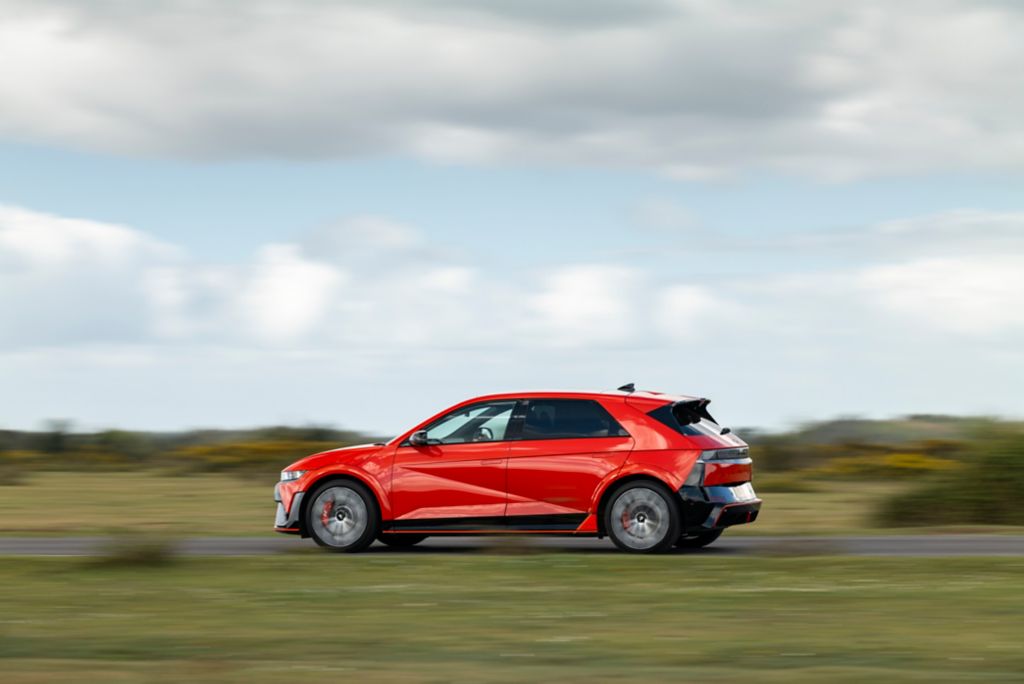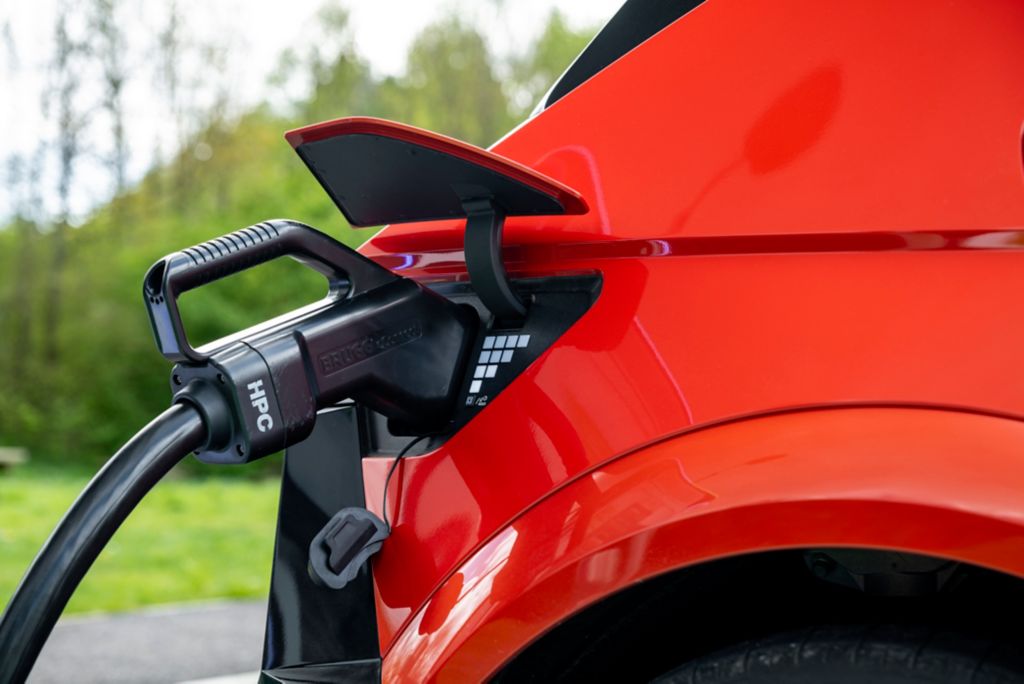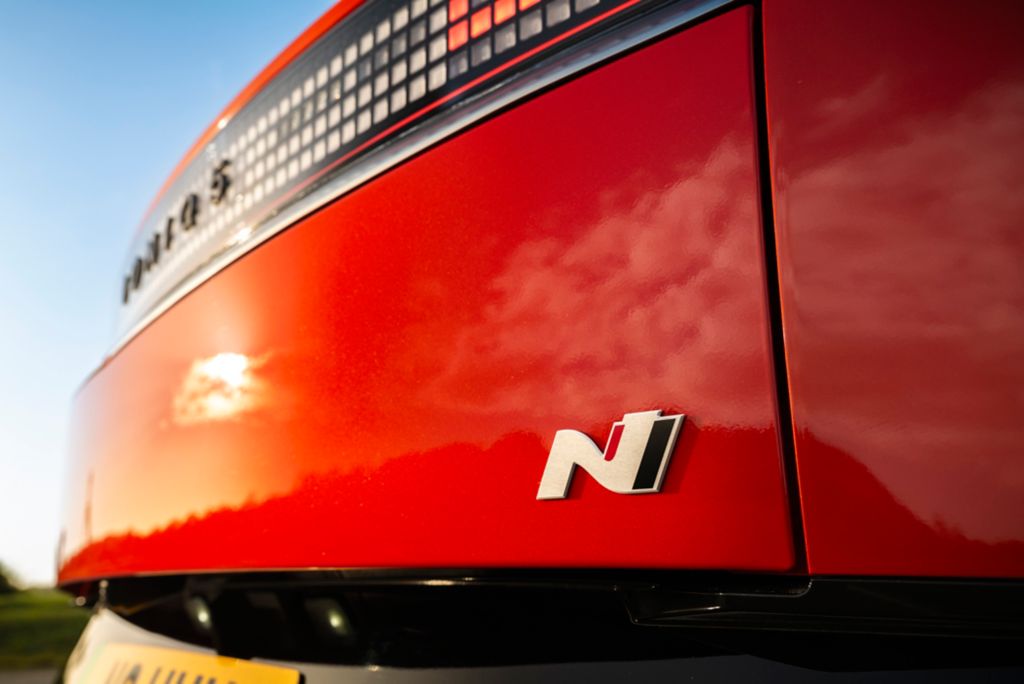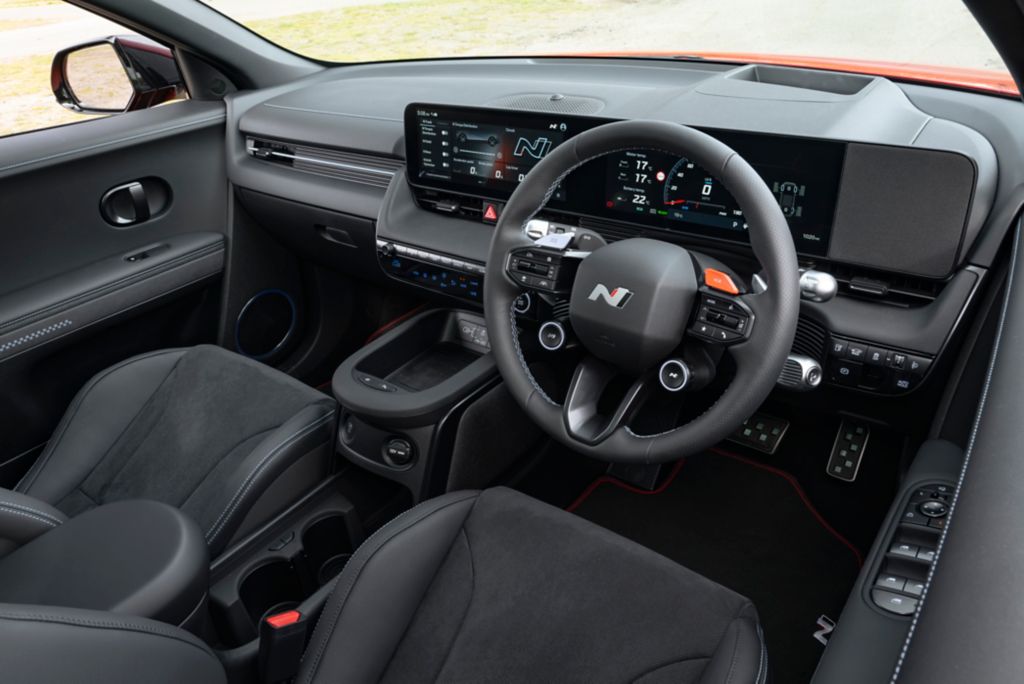UK drive: Hyundai takes EV performance to new level with Ioniq 5 N
The N versions of i20 and i30 are no more – long live the performance electric era of Hyundai. Cameron Richards has driven the first electric N car.

What is it?

We are entering new territories for the petrolhead. Combustion engines are being pushed to the background and for many drivers, this means that cars are moving away from true ‘enthusiast’ ways of getting around.However, to Hyundai, it’s a golden opportunity to reveal a performance car that fits in well with a whole new generation of car lovers – that being the Ioniq 5 N.
The Ioniq 5 N is the ‘hot’ version of its standard electric hatchback but incorporates a variety of go-faster touches to make it more involving, more exciting and more engine-like than ever.
Many hot EVs are entering the market such as the Abarth 500e, Volkswagen ID.3 GTX and the MG4 XPower, so can the Ioniq 5 N do enough to come out on top?
What’s new?

Hyundai’s ‘N’ performance arm has always focused on making its cars as useable and exciting as possible, so it’s much the same story here – though some firsts going on.Not only is it the first electric Hyundai N car, but it features several driving modes to help when being used on a track. There’s a launch control function and bigger front brakes to cope with harsh track use while an N Active Sound system and N e-Shift essentially recreate the sound and feel of a traditional gearbox that you’d expect to find in a petrol-powered hot-hatch. It’s all there to make the 5 N feel as involving to drive as possible.
What’s under the bonnet?

You’ll find a larger battery pack underneath the 5 N compared with the standard Ioniq – up to 84kWh over the regular model’s 78kWh pack. However, a larger battery doesn’t mean that it comes with a longer range, with a claimed 278 miles compared to 298 for the standard car.Courtesy of two electric motors the Ioniq 5 N produces an impressive 609bhp, while one press of the NGB button on the steering wheel unlocks a full 641 bhp for a 10-second period.
This means that 0-60mph can be dealt with in 3.5 seconds (or 3.4 with the NGB button engaged) while the N’s top speed stands at 161mph. All Ioniq 5 N’s come with four-wheel-drive as standard.
What’s it like to drive?
Slot in behind the wheel of the Ioniq 5 N and even from the first press of the starter button, it’s easy to tell that this is like no other electric car. Even though the simulated internal combustion engine noises that are pumped through the speakers may be fake, they still add to the fun factor when you drive it – they’re quite realistic, too.
Sharp and nimble steering combines with the Ioniq 5 N’s flat cornering characteristics well and even though it’s a heavy car weighing over two tonnes, it doesn’t feel like a tank to drive. The acceleration is seemingly unending while the ‘gearshifts’ really do work – you can even ‘hit’ the rev limiter if you leave it in a certain gear.
You can customise the suspension and steering with Normal, Sport and Sport+ with the ride comfort still adequate in Normal and Sport, however its most fierce setting made the N very sharp over bumps – the steering gets quicker in Sport and Sport+ mode and you can even change the noise of the fake exhaust, too.
On the negative side, the Ioniq 5 has always been a large car and the N still suffers from the same problem, especially with its larger body kit. Feeding through narrow gaps in town and traffic is still a chore as the car is quite wide and it doesn’t inspire confidence.
How does it look?

When the standard car was launched, it had a very daring and unique look to it – which is good or bad, depending on how you look at it.The N version carries on that eye-catching style by featuring Hyundai’s flagship Performance blue paintwork, flared wheel arches, side skirts, front bumper lip and large rear boot spoiler.
There’s a lot of carbon and gloss black trim around the front bumper and on the rear diffuser and bumper while 21-inch alloys and red accents surrounding the lower part of the car around the front lips and side skirts help complete the traditional ‘N’ look.
What’s it like inside?

Inside the Ioniq 5 N is a little different compared to the standard car with a sporty steering wheel with controls for your different drive modes, there are also N sports bucket seats which do a superb job of keeping you in place around the corners and there are aluminium pedals and blue stitching throughout the interior.The cabin itself was very spacious and had lots of cubby holes and cup holders – we liked the decent-sized glovebox which adds to the car’s practicality. In the back, there is loads of head and legroom and the doors open very wide for easy access.
Boot space was a decent size at 480 litres with the seats up and extended to 1,540 litres with them folded down.
The only negative was that the interior quality wasn’t as good as other Hyundai products with a lot of hard plastics used throughout – which is disappointing on a car at this price point.
What’s the spec like?

There is only one specification and it comes with a load of goodies including the N Bucket seats and sporty steering wheel, 21-inch forged alloy wheels, digital key, rear electronic slip differential, Bose sound system and a 12.3-inch touchscreen.Prices for the N start at £65,000 and rise to £66,250 depending on any accessories you may wish to add such as piano black or silver side trims and C pillar decals.
Compared to other performance EVs, the Hyundai is rather expensive compared to £47,000 for the Volkswagen ID.3 GTX and £36,000 for the MG4 XPower – making the South Korean almost double the price.
Verdict
Hyundai has proved that just because a car is electric, doesn’t mean it’s just a tool for getting around.
The Ioniq 5 N is a car tailored to driving enthusiasts and petrolheads from a new era of motoring and in many ways it makes this a groundbreaking car.
The driving experience and overall feel of the car are unique and even though it’s expensive at £65,000 it doesn’t stop the N from being the car that could break the ice between EV sceptics and full-blown car enthusiasts.





